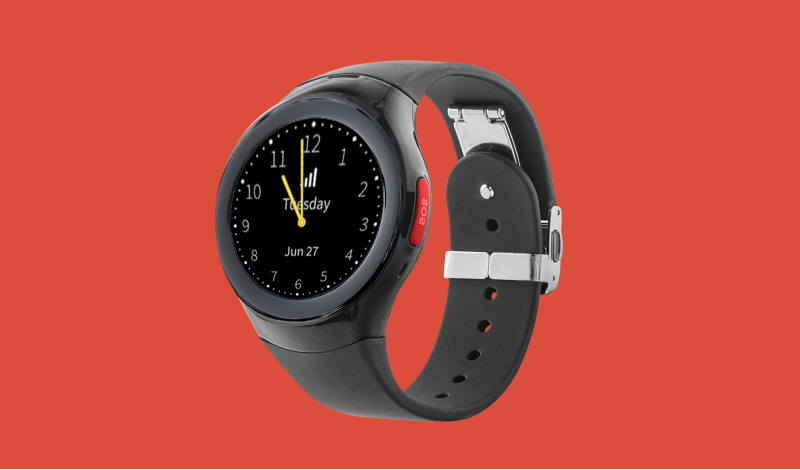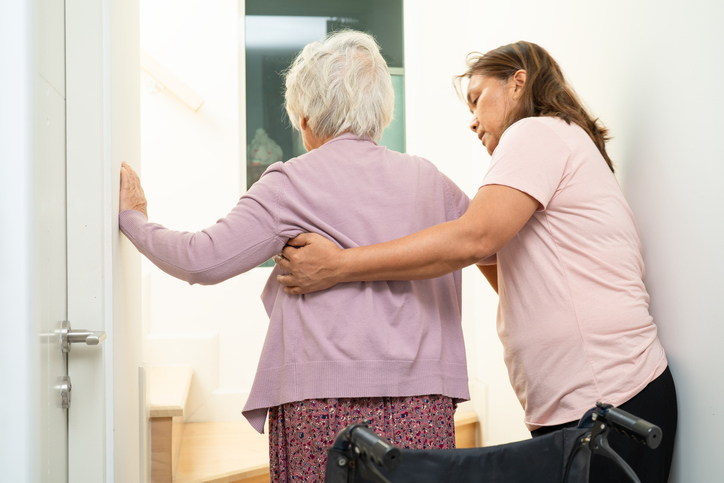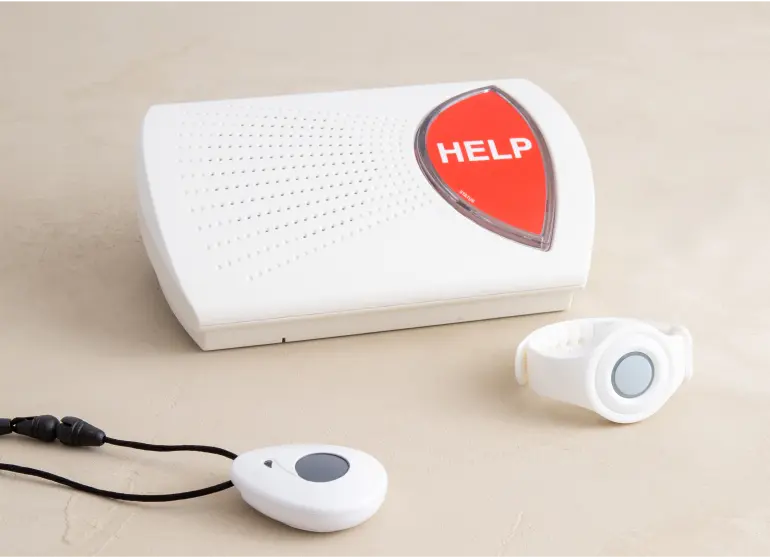
Nurses could be considered the backbone of the health care profession. Think about it: When you visit a physician’s office, hospital, urgent care clinic, or other health care facility, you typically spend more time with a nurse than any other practitioner. With so much patient interaction, nurses have some unbelievable and heart-wrenching stories to tell.
For decades, nurses have been essential fixtures in the medical field, but the field is constantly evolving thanks to advancing technology and increased diversity Today, nurse practitioners play an important role in the health care system, and the demand for these positions will likely only increase.
Nurses get a front row seat to the positive and negative sides of the health care industry. Whether it’s drug theft, unethical treatment procedures, sexual harassment, or dangerous policies and guidelines implemented by the hospitals, many nurses have some tales to tell.
To get a beat on what a nurse’s life can be like, we surveyed 127 nurses and asked them to honestly describe their industry from top to bottom, good and bad. Their stories are better than anything you’ll read in your doctor’s waiting area, so stay with us as they share their stories.
Confessional Time in the Nurse’s Lounge

Nurses treat patients from all walks of life. Some may be on their deathbed, experiencing their final moments of life. Some could be giving birth. Others could be heavily medicated, or have rude or demanding personalities. And then there are the co-workers who might cut corners to save time or fail to lend a helping hand. Given the variety of situations that nurses face each day, it’s no surprise that many of them had confessions about their workplaces.
Twenty-two percent of nurses saw a colleague helping themselves to extra meds. To put this in perspective, a 2018 report found that about $164 million worth of medicine was stolen or misused by health care professionals. In 42 percent of cases, doctors were involved, and nurses were involved in 28 percent of cases.
Almost 70 percent of nurses said they found patients lying about or not disclosing pertinent medical information. “How often do you drink and smoke?” or “do you have any sexually transmitted diseases?” could be hard to answer honestly out of fear of embarrassment. Studies have also found that financial hardship can cause patients to withhold essential information from their doctors.
Some nurses also interact with criminals from time to time but have to offer them the same care as any other patient. Fifty-five percent of nurses surveyed had treated a criminal. Additionally, over 53 percent of nurses confessed to being bullied or having seen bullying at work, and roughly 36 percent said a patient had sexually harassed them. Another 13 percent said they had seen or knew about colleagues having sex in the workplace.
Did I Choose the Right Profession?
Many people have second-guessed their career decisions, and nurses are no exception. With the demands placed on nurses in today’s health care environment, it’s not surprising that nearly 59 percent of nurses who regretted their career said it was because they were burnt out.

Of those experiencing regret about becoming a nurse, 39 percent were in the field for five years or less. The group experiencing the least amount of regret had 21 years or more in the field.
Feeling overworked yet underpaid was relatively common among all nurses, and over half of the nurses who regretted their career said the same. Over 43 percent of nurses feeling regret believed they were underpaid. According to the U.S. Bureau of Labor Statistics, the mean annual earnings for registered nurses are around $70,000. However, the lowest 10 percent earn less than $48,690, which is a significant range.
The stress level associated with many medical professions is understandably high, with almost 48 percent of nurses mentioning emotional stress as a reason they experienced career regret. This percentage could be higher among nurses working with certain populations, like hospice nurses who provide care for people at the end of their life.
Other reasons nurses reported feeling career regret were long hours (39 percent), incurring high student debt (nearly 33 percent), and dealing with difficult colleagues (over 30 percent).
On the Move
Is the grass greener at the hospital or clinic across town – or in a totally different field altogether? It’s a question most nurses might ask themselves in the middle of a hectic shift.

Over 68 percent of nurses indicated they were not looking for a new job. Breaking down this percentage by the amount of time spent in the nursing profession tells us even more.
For those with 21 or more years of nursing experience, nearly 80 percent were not searching for new jobs. However, only 54 percent with five years or less of experience said they weren’t scanning online job boards for their next move.
On the flip side, almost 40 percent of nurses with only a few years in the profession were interested in discovering new nursing opportunities. For example, nurses with an RN certification may want to explore becoming a nurse practitioner or a nurse anesthetist. Nurse anesthetists in the U.S. earn a mean annual salary of over $169,000.
Bad Patients
Do colleagues or customers in your profession ever get under your skin? The annoying habits of patients or fellow health care professionals can test the nerves of nurses too.

Demands on nurses come from many sides. Doctors, colleagues, and patients are constantly wanting or needing something. Yet it’s the unreasonable demands of their charges’ family members that irritate nurses the most. A nurse’s workload is probably arduous enough without the added stress of a patient’s relatives’ unrealistic expectations, despite them likely coming from a place of genuine concern for their loved ones.
Requests of this nature are probably why 73 percent of nurses reported being annoyed when family members made frequent or unreasonable demands. Then, you have patients who diagnose their own ills, coming to a hospital or clinic to instruct nurses on their condition and what prescriptions are best suited for their situation. You might imagine this doesn’t go over well since 44 percent of nurses said this was an annoying behavior.
And let’s not forget about the patient who in the middle of the exam reveals they too are also a physician or nurse. Just over 17 percent of nurses said such news got under their skin.
There were also a few differences between nurses of different age groups. Millennial nurses were more annoyed than nurses of other generations by parents who refused to vaccinate their children and at patients who continued to smoke. It is interesting to note that nearly 18 of every 100 people between the ages of 25 to 44 smoke. That’s 17.6 percent of the population and just four-tenths of a percent behind adults aged 45 to 64 who smoke.
For the Love of the Job

Patients, as demanding as they could be, also gave nurses a sense of accomplishment for the role they played in helping them to recover and get back to their lives, from supporting those who lost limbs to those who lived in abusive situations.
The physical demands of being a nurse can take their toll. Imagine being on your feet and moving from room to room, lifting and moving patients, for eight- to twelve-hour shifts.
Then comes the emotional toll that often times comes with nursing. In fact, 44 percent revealed the emotional demands of their duties were even more difficult than the physical demands. Sitting with a dying patient may be bearable for some nurses but emotionally traumatic for others. Making self-care a priority and asserting personal boundaries at work can help to alleviate the emotional burden of a nurse’s work.
Through all the difficulties and challenges most nurses must endure, the bright side is that 88.2 percent of nurses were still satisfied with their career choice.
Practical Advice for Patients
Most people in need of medical care want to get better and return to their normal activities as soon as possible. The nurses surveyed also gave some practical advice for providing a higher quality of care.

First and foremost, follow the instructions given to you by doctors, nurses, and other health care providers. It’s also important to ask questions to understand your conditions and treatments fully, but if it’s continuously hard for you to feel comfortable following your doctor or nurse’s guidance, it may be time to find a new practitioner whom you trust more.
Following medical advice sounds simple, but it’s a significant issue given 73 percent of nurses cited this tidbit as advice they wished patients would follow. To back up this request, the Centers for Disease Control and Prevention (CDC) recently reported that 1 in 4 Medicare patients 65 or older don’t take their blood pressure medicine as directed. And if the statistic isn’t staggering enough, 20 to 30 percent of prescriptions written for chronic (long-term) conditions are never filled.
Another wish our nurses had for patients was to change or eliminate unhealthy behaviors or lifestyles. In the long run, this could prevent you from getting the same conditions again in the future.
Immediately behind lifestyle change came honesty. We’ve already seen how not revealing all of your issues can frustrate nurses, so taking their advice to be upfront and honest about your medical condition or what is ailing you will go a long way toward helping you find solutions.
Although saying “thank you” or expressing gratitude to the nurse or nurses involved in your medical care is something you think most people would show, it was a vital, but missing, component to nearly half of the nurses surveyed.
Other recommendations such as practicing good personal hygiene, exercising regularly, and eating a healthier diet might put a smile on your nurse’s face.
Final Chart Notes
Because most of us spend more time with nurses than other health care providers, taking their advice on how to be a better patient will most likely improve your next experience in the doctor’s office or clinic.
Remember, nurses have many responsibilities and multiple patients to care for at any given time. Those of us at Bay Alarm Medical understand and appreciate the many demands placed on the nurses who so capably serve us and improve our well-being.
Our medical alert systems can also improve your well-being and peace of mind, and it certainly gives the family and friends who love and care for you a sense of comfort knowing your health is our priority.
Methodology
For this study, we surveyed 127 professional nurses about their experiences on the job. Seventy-five were registered nurses, 29 were licensed practical nurses, 12 were nurse practitioners, and the remaining nurses held other job titles. Forty-two nurses had worked in the field for five years or less, 26 had worked six to 10 years, 31 had worked for 11 to 20 years, and 30 had worked 21 years or longer.
The average age of our participants was 39.8. 85.8 percent of nurses surveyed were women, 14.2 percent were men, and less than 1 percent were non-binary.
We used a variety of methods to recruit nurses to our survey. Twenty-four were recruited via targeted Facebook advertising. Fifty-six were found using Amazon’s Mechanical Turk. The remaining 47 respondents were asked to participate through postings on various Facebook groups and subreddits related to nursing and medicine.
Limitations
All of the findings above are based purely on nurses’ memories and perspectives. This means there could be information that was exaggerated, minimized, or forgotten.
We did not include all possible answer options for the questions in our survey; therefore, our results are limited.
Since we gathered our participants from Mturk, Facebook ads, and posts on social networking sites, our results may be different than if we had used other methods of data collection. Further investigation into the lives of nursing professionals should be conducted to include as many perspectives and experiences as possible.
The findings in this study were neither weighted nor statistically tested.
Sources
https://rnbsnonline.unm.edu/articles/nurses-are-the-future-of-healthcare.aspx
https://www.cnn.com/2014/07/30/health/talking-about-embarrassing-symptoms/index.html
https://nypost.com/2018/05/10/why-patients-lie-to-their-doctors/
https://www.theguardian.com/healthcare-network/2016/feb/25/nurses-future-nhs-five-year-forward
https://www.bls.gov/ooh/healthcare/registered-nurses.htm#tab-5
https://www.bls.gov/oes/current/oes291151.htm
https://www.cdc.gov/tobacco/php/data-statistics/adult-data-cigarettes/
https://news.aamc.org/patient-care/article/patients-follow-doctors-advice-better-outcomes/
https://www.nytimes.com/2017/04/17/well/the-cost-of-not-taking-your-medicine.html
Fair Use Statement
Healthy confessions are good for the soul, so if you would like to share this information with your readers for any noncommerical purposes, then be our guest. In return, all we ask is that you link back to our site so that those who worked so diligently on this project can receive due credit.















